Invited by the "2011 Plan" - China Collaborative Innovation Center of Judicial Civilization, the "111 Plan" Base for Evidence Science Innovation and Talent Recruitment, the Institute of Evidence Law and Forensic Science of CUPL, John Henry Wigmore Professor Ronald J. Allen from U.S. Northwestern University Pritzker School of Law, successfully completed his academic visiting at Institute of Evidence Law and Forensic Science, CUPL from May 2nd to May 7th, 2017.
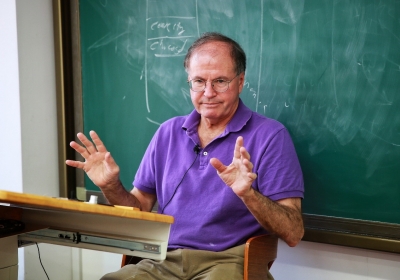
Professor Ronald J. Allen delivered a course on topic of Advanced Lectures on Evidence Law
Professor Ronald J. Allen delivered a course on topic of Advanced Lectures on Evidence Law for students in CUPL This course started from May 2nd for 6 days.
Professor Ronald J. Allen is John Henry Wigmore professor of the Northwestern University Pritzker School of Law, USA, Yangtze River Scholar of the PRC Ministry of Education, the president of Board of Foreign Advisors of the Institute of Evidence Law and Forensic Science, CUPL, as well as the president of the International Association of Evidence Science.
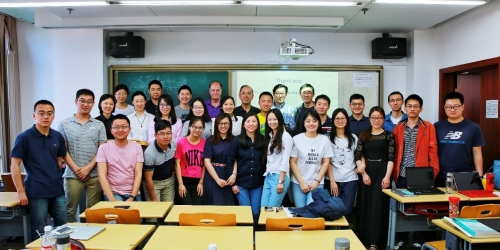
This year, the lectures involves not only the Federal rules of evidence and basic principles, but also the frontier fields of evidence science. The whole class was divided into 3 groups for the purpose of discussion, which created an interactive environment for learning. Through debating about the rules and its related theories, students learned a lot from this class.
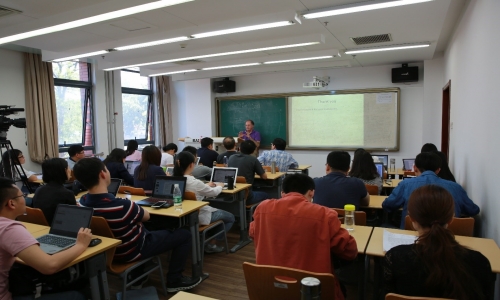
A Senior Seminar for Foreign Experts was Co-organized by the Institute of Evidence Law and Forensic Science and the Institute of Procedural Law of CUPL: Professor Ronald J. Allen Delivered a Presentation on Topic of Approaches to and Challenges for Evidence Science
On May 3rd, 2017, Prof. Allen attended a seminar as guest speaker, which is organized by the Institute of Evidence Law and Forensic Science and Institute of Procedural Law. The topic of the seminar is Approaches to and Challenges for Evidence Science. The seminar was moderated by Prof. Baosheng Zhang, Co-Chair of the “2011 Plan” – China Collaborative Innovation Center of Judicial Civilization, and Prof. Guangzhong Chen, tenured professor of CUPL, made an opening speech, then Prof. Yuguan Yang and Prof. Yongzhong Gu, Vice Deans of Institute of Procedural Law made comments after the lecture. Prof. Li Li, Dean of the School of Foreign Languages, Prof. Xu Wang, Dean of Institute of Evidence Law and Forensic Science, Prof. Bensen Li from Institute of Procedural Law, Associate Prof. Yuanfeng Wang and Associate Prof. Hongqi Wu from Institute of Evidence Law and Forensic Science, as well as graduate and PhD students major in Evidence Law and other relevant disciplines from CUPL attended the seminar. Zhuhao Wang, an associate professor from Institute of Evidence Law and Forensic Science served as simultaneous interpreter.
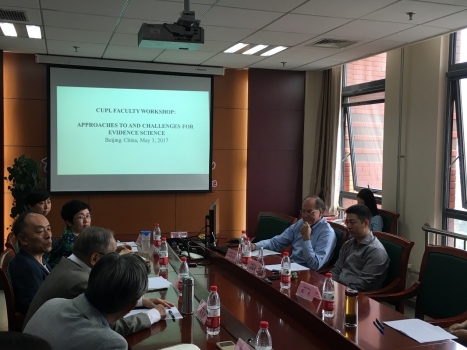
Prof. Allen expressed his admiration for the achievement that Chinese scholars had achieved on evidence law. It is important to distinguish between evidence law and the field of evidence. Scholars have been familiar with the knowledge of evidence law, but the field of evidence is much broader, involving a variety of scientific methods, such as logistics, cognitive science, politics, economic and so on. This seminar, Approaches to and Challenges for Evidence Science, aims to provide a different perspective to help scholars understand the nature of evidence science.
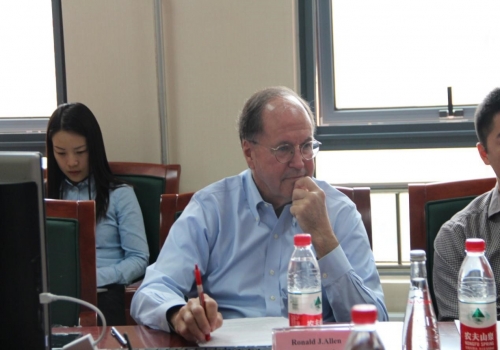
There are three research methodologies that Prof. Allen mainly illustrated: Firstly, normative research, which is the mainstream of research approaches; secondly, analytical research; thirdly, empirical research. The future evidence science should be emphasized on empirical research. Later, Prof. Allen dialectically analyzed these three types of research methodologies separately. First of all, although normative research is the most traditional one, it could be defective to some extent. However, given that argument, the research findings can still be analyzed. Secondarily, analytical research could be applied in diverse areas of research. Despite of the fact that much legal scholarship is conducted with analytical approach, there are pitfalls to avoid. For example, reliance on the crowd and ad hominem. Therefore, we should keep cautious to the subtle relationship between analytical research and the logical pitfalls in our daily life. Finally, empirical work is the real future of evidence law.
Prof. Allen subsequently pointed out that there would be five main issues which solved in the best approach by evidence scholars.
1. The epistemological problem: the significance of fact finding, which is the most traditional issue of evidence;
2. The organizational problem: allocation of power and discretion orders actor and branch of government relationships;
3. The governance problem: interaction of litigation and primary behavior—role of incentives;
4. The social problem: trials as performative events; obstructions to government;
5.The enforcement problem: law on the books v. law in action.
In addition, there are three points needed to be considered as well: For one thing, the relationship between substantive law and procedural law; For another, economics, although legal justice is a matter of great account, social resources need to be balanced; At last, whether trials are as the ideal, or as the embodiment of social breakdown.
According to the research productions mentioned above, Prof. Allen concluded that the fundamental rationale of evidence law shall mainly be illustrated as the following eight points:
1. Evidence law should facilitate the accurate, efficient, and fair finding of facts pertinent to legal disputes;
2. The law of evidence does not determine the “facts” that may be found; the substantive law does;
3. The evidentiary process should respect natural reasoning processes;
4. Evidence law exists to facilitate the rational resolutions of disputes and not as an end in itself, and should be so constructed and interpreted;
5. Decisions at trial are always decisions under uncertainty, with mistakes being unavoidable in the long run;
6. Evidence law should not discriminate among groups in society;
7. To the extent possible, without significantly compromising any of the guidelines noted above, the law of evidence should respect the norms of the communities to which it applies.
8. There may be occasion to provide exceptions to any of the guiding principles noted above, but those exceptions should be rare, limited, clear, and justified. Examples may include privileges, as well as the structuring of incentives for other socially valuable purposes.
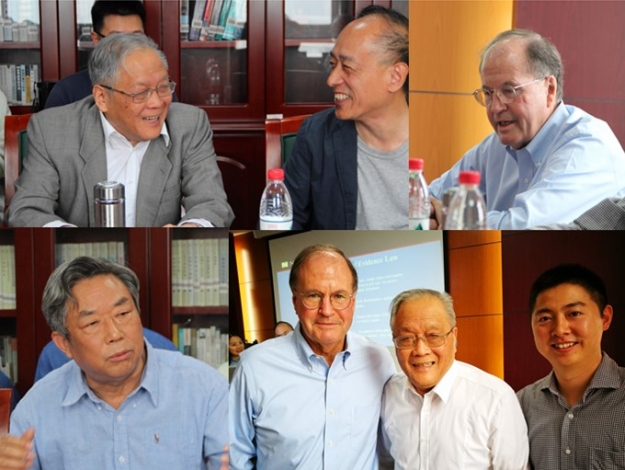
Finally, Prof. Yuguan Yang and Yongzhong Gu gave comments and questions on the seminar.The workshop held on May 3rd, 2017 was filled with informative academic atmosphere, ended successfully.